THE WORKING CLASS IN AMERICAN HISTORY
Editorial Advisors
James R. Barrett
Alice Kessler-Harris
Nelson Lichtenstein
David Montgomery
A list of books in the series appears at the end of this book.
2013 by the Board of Trustees of the University of Illinois
All rights reserved
Manufactured in the United States of America
C 5 4 3 2 1

This book is printed on acid-free paper.
Library of Congress Cataloging-in-Publication Data
Doody, Colleen.
Detroit's Cold War : the origins of postwar conservatism / Colleen Doody.
p. cm. (The working class in American history)
Includes bibliographical references and index.
ISBN 978-0-252-03727-6 (cloth : acid-free paper)
1. Detroit (Mich.)Politics and government20th century.
2. Detroit (Mich.)Social conditions20th century.
3. Cold WarSocial aspectsMichiganDetroitHistory.
4. ConservatismMichiganDetroitHistory20th century.
5. Anti-communist movementsMichiganDetroitHistory20th century.
6. Working classMichiganDetroitHistory20th century.
7. CatholicsPolitical activityMichiganDetroitHistory20th century.
8. BusinessmenPolitical activityMichiganDetroitHistory20th century.
9. Political culturePolitical activityMichiganDetroitHistory20th century.
I. Title.
F574.D457D66 2012
977.4'34043dc23 2012017781
ACKNOWLEDGMENTS
This manuscript marks the end of a long and intellectually arduous process. It began as a work on American anti-Communism during the early Cold War. However, at the suggestion of the editors of the Working Class in America series at University of Illinois Press, I rewrote the book to focus instead on the roots of twentieth-century American conservatism. Their suggestion made a great deal of sense at this particular political moment. With the rise of the Tea Party, the United States is once again in the midst of a conservative revival. Many of the ideas contemporary conservatives raise will be quite familiar to readers of this book. I hope that this work will help make sense of the current rhetoric, with its obsession with Socialism and Communism having been pulled directly from the Cold War.
I have been enormously fortunate to work with Nelson Lichtenstein throughout the writing process. Nelson is without a doubt one of the most intellectually generous mentors a writer could have. He has read this work in countless iterations and has always been insightful and encouraging. I cannot thank him enough. During my years at University of Virginia, I was also privileged enough to work with Melvyn Leffler, whose intellect and insight profoundly shaped my work. No academic could have asked for better models than these two scholars.
At DePaul University, I have been lucky enough to have wonderful colleagues in the History Department who give me both the occasional pep talk and motivational kick. Lisa Sigel in particular has read and reread various revisions of this work, always providing me with enormously helpful guidance. I am forever grateful for all her insights and support. I also benefitted from grants from DePaul's University Research Council, which provided me with much needed research leave as well as funding to cover copyediting and indexing.
One of the great advantages of working in Chicago is having access to an incredible community of scholars. I was able to present my chapter on labor to the Newberry Seminar in Labor History. Thanks to Martha Biondi and Stephen Meyer for their insightful comments. I'm especially grateful that Stephen Meyer told me about the Likert papers at the Bentley Library, University of Michigan. In addition to the Newberry, I was lucky enough to participate in the North American Religions Workshop at Northwestern University. Robert Orsi and the other participants of the workshop read my chapter on Catholic anti-Communism and provided me with greatly helpful suggestions.
I'd also like to thank Laurie Matheson of the University of Illinois Press, the anonymous readers, and the editorial advisors of the Working Class in American History series, particularly Jim Barrett. They all provided critical feedback and suggestions that have made this a better project overall.
Finally, I would like to thank Bridget, my wonderful and talented partner who gave me moral and intellectual support throughout this project. And I thank my mother, who passed away before this project was completed. She nurtured my curiosity from the very beginning, and I owe her an incredible debt of gratitude for encouraging my love of history.
INTRODUCTION
One evening during the late 1940s, a Catholic housewife on the east side of Detroit knocked on the doors of the eighteen families on her block. This woman had decided that she could no longer stand idly by while Communism threatened the United States and the Catholic world. Vowing to fight godless Marxism with prayer, she asked all the families on her block to gather together once a week to pray the Rosary for the conversion of Russia. Her neighbors responded enthusiastically: sixteen of the families participated. Kneeling in one family's living room, clutching their Rosary beads, they implored the Virgin Mary to destroy Communism and lead the United States away from secularism. By 1952, these eastside families were joined by thousands of other Detroit-area Catholics who hoped and prayed that Mary would vanquish the modern-day anti-Christthe Communists.
In a very different part of Detroit just a few years after the housewife began her Rosary group, B. E. Hutchinson, the chairman of the finance committee at Chrysler, asked why Socialism and Communism were so popular. He speculated, Heretical political and economic ideas are at once the more appealing and the more insidious when presented under the guise of a New Deal, a Fair Deal or a Welfare State. He urged his listeners to resist, not only because such ideologies did not work well, but also because Capitalism is compatible with the dignity and liberty of the individual man, which they are not.
Both the anonymous Catholic housewife and B. E. Hutchinson lived in the years before a coherent conservative movement existed, yet they each expressed some of the core ideas of late-twentieth-century conservatismembrace of religious traditionalism, celebration of laissez-faire capitalism, hostility toward big-government liberalism, and opposition to Communism. As many scholars of American conservatism have pointed out, these ideals were not necessarily smoothly compatible. Who knows, for example, if a housewife from one of the most heavily working-class, industrial areas of Detroit would agree with an executive of one of the largest corporations in the country in his enthusiastic celebration of unregulated capitalism. Yet, their ideologies shared one key component: anti-Communism. For both the Catholic housewife and the laissez-faire businessman, their opposition to Communism was much more than fear of the strategic power of the Soviet Union. Instead, their hostility to Communism grew out of their larger critique of American society. Detroit's Cold War explores the beginnings of post-World War II popular conservatism, particularly the glue that held this disparate movement together: anti-Communism.
Ronald Reagan's victory in 1980 and the rise of the conservative movement flummoxed scholars, many of whom viewed the twentieth century through the lens of the liberal consensus. According to this theory, which was first articulated in the years shortly after World War II, Far Left and Far Right ideologies had disappeared in the United States. In their place, according to historians like John Higham, a broad agreement existed throughout society on questions of political economy and class relations. American capitalism was so productive and so successful at spreading affluence that struggles over class inequality had disappeared. Any groups that challenged this consensus, according to these consensus scholars, did so out of psychological need rather than economic interest. As Lionel Trilling snidely asserted, by the 1950s, liberalism was the nation's sole intellectual tradition because there were no conservative or reactionary ideas in general circulation. The conservative impulse did not express itself in ideas but only in action or in irritable mental gestures which seek to resemble ideas.

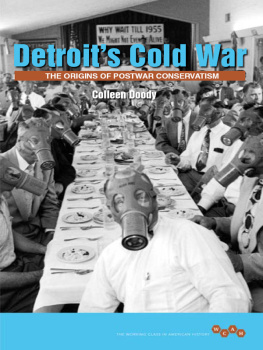
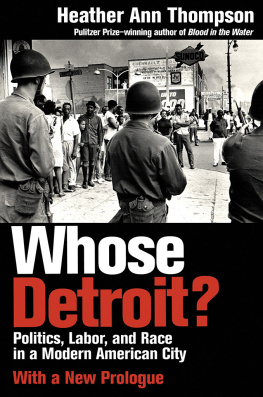
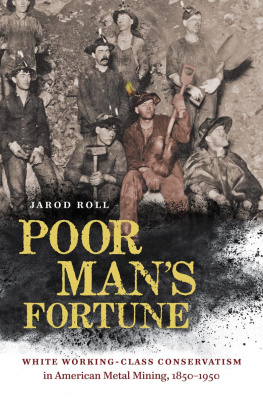
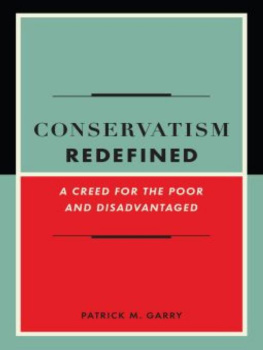

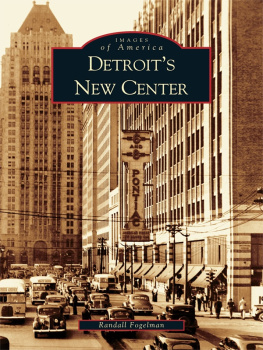


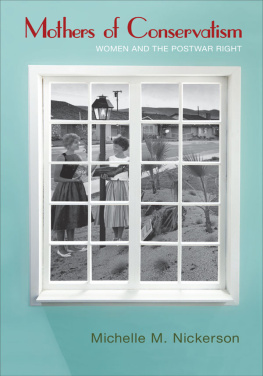
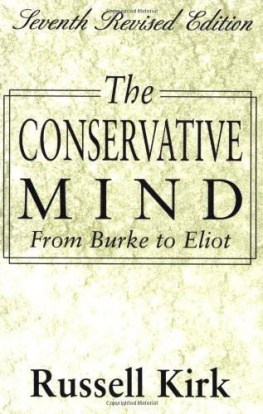
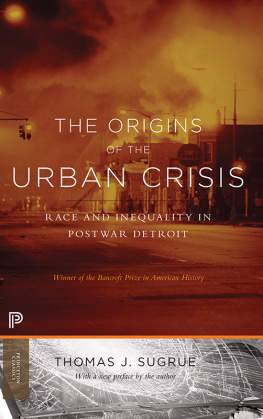
 This book is printed on acid-free paper.
This book is printed on acid-free paper.